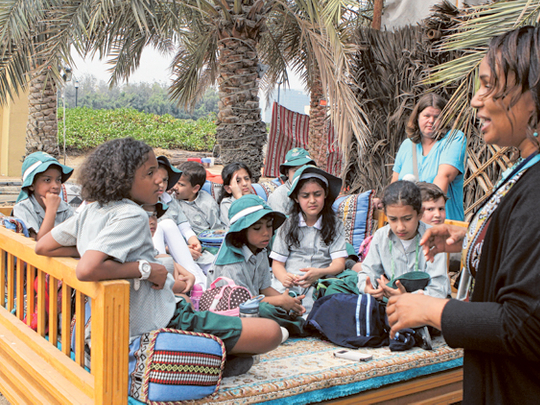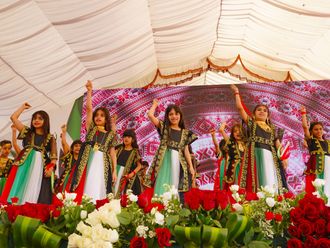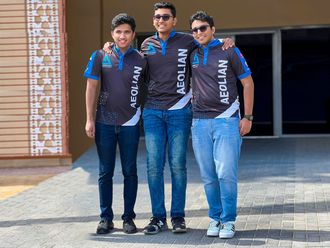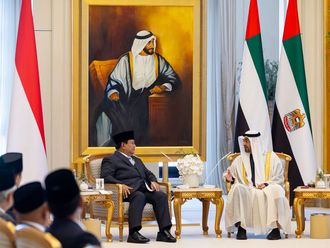
Abu Dhabi: A collection of Emirati fairy tales and fables will be preserved in a book for the next generation that will help youngsters get re-introduced to the rich tradition of storytelling.
Organised by the Abu Dhabi Music and Art Foundation (ADMAF), students came up with the idea to contribute to the legacy of the Emirati storytelling tradition and help keep this important cultural heritage alive.
A group of 74 students enrolled at the Academic Bridge Programme at Zayed University catalogued and published a collection of UAE fairy tales with the aim of preserving them for future generations, the university announced earlier this week.
The book, titled Kharareef, includes 50 fairy tales and fables in the Emirati dialect to evoke the genuine voice of the characters.
“Kharareef started as a classroom initiative and developed into a project titled Story Mile, which highlights the best of Emirati visual and narrative art in a collection of traditional Emirati fables and fairy tales,” Dr Wayne Jones, the director of the Academic Bridge Programme at ZU, told Gulf News.
“This is the second edition of the project and it consists of all new works of visual and narrative art. The Story Mile project was exhibited at Khalifa Park in the Six Continents Festival. Last year, a group of students also produced 48 tales, which were displayed at the capital’s corniche,” Jones said.
Around 120 talented writers and illustrators, whose average age is around 20, have been involved in the Story Mile project over the two years.
Noora Ali Al Mansouri, a student at the Academic Bridge Programme, said, “I wrote Al Roua’a and Saber – the Brave story. Most Emiratis don’t remember these stories from the past, but now that they are written, many of them will learn more things about the UAE’s culture. Such stories teach us values like bravery and patience.”
“I was one of the artists who transferred the student’s stories into illustrations. I wanted to translate the Emirati culture and traditions into art,” Aisha Al Hamrani, a student at the college of art at ZU, said.
“Art has always been the best way to present any culture or history. Unfortunately, we did not have the chance to document all the aspects of our culture by ourselves due to the poverty and illiteracy we lived in before the discovery of oil. Now, I am proud to help as much as I can to document what we have learnt from our ancestors,” Aisha added.
When asked how students collect the Emirati stories, Dr Jones said: “Stories are original pieces of work created by ZU students. They were provided with characters who were presented as guardians of Emirati values and culture. They were also given some themes such as bravery, respect and selflessness. Based on this, students wrote their stories.”
Kharareef will remain displayed at the Six Continent Festival at Khalifa Park until the end of March.
The book will also be displayed at the Book Fair.










